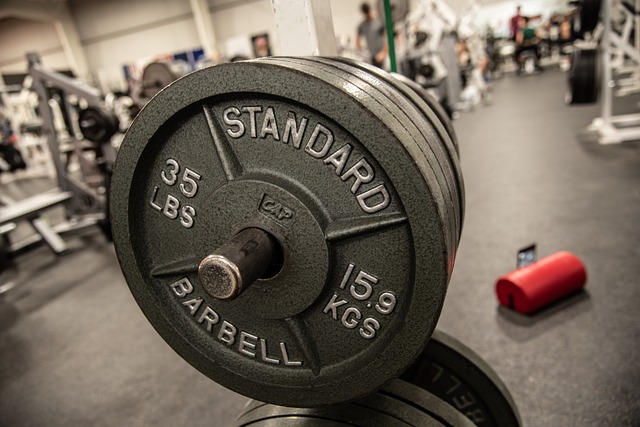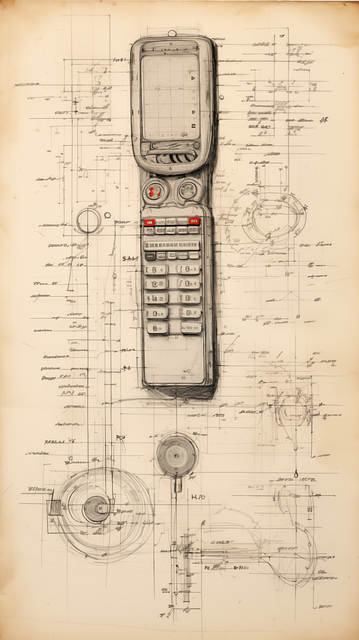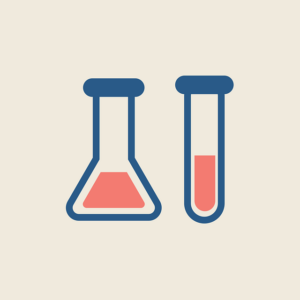Ensure UK Tech Compliance: The Role of Translation Services
Adhering to UK technical standards is vital for business success, with severe consequences for non-compliance. Translation services are indispensable for international companies aiming to navigate these standards effectively, ensuring consumer trust…….

Adhering to UK technical standards is vital for business success, with severe consequences for non-compliance. Translation services are indispensable for international companies aiming to navigate these standards effectively, ensuring consumer trust and compliance with global industry rules. Identifying relevant guidelines requires a deep dive into specific sectors, with regulatory bodies like NICE, MHRA, FCA, and BSI setting crucial standards. Professional translators act as bridges between international regulations and local implementation, demanding precision, cultural adaptability, and specialized knowledge to avoid legal issues and safety hazards. Engaging translation services specializing in UK Technical Guidelines ensures accurate, consistent translations while preserving original meaning, terminology, and cultural nuances. Rigorous QA checks, including back-translation and expert reviews, maintain high standards. Staying ahead of regulatory changes through proactive measures like internal audits and leveraging these translation services is key to success, as demonstrated by successful case studies across sectors.
Are your UK technical standards compliant with industry rules? In today’s globalised market, ensuring adherence to local guidelines is paramount. This comprehensive guide explores the intricate world of UK technical standards and their significance in various sectors. We delve into identifying relevant industry guidelines, the pivotal role of translation services, common challenges, best practices, quality assurance, legal implications, and strategies for staying ahead of changing standards. Discover case studies of successful UK companies navigating these complexities with expertise. Leverage translation services to ensure your technical documentation aligns perfectly with UK standards.
- Understanding UK Technical Standards and Their Importance
- Identifying Relevant Industry Guidelines for Your Sector
- The Role of Translation Services in Ensuring Compliance
- Common Challenges in Translating Technical Documentation
- Best Practices for Accurate and Consistent Translation
- Quality Assurance Checks for Translated Materials
- Legal Implications of Non-Compliance: What You Need to Know
- Strategies for Keeping Up with Changing Standards and Regulations
- Case Studies: Success Stories of UK Companies in Compliance
Understanding UK Technical Standards and Their Importance

In the dynamic landscape of technology, staying aligned with UK technical standards is paramount for businesses aiming to thrive in the market. These guidelines aren’t merely a set of rules; they are a framework that ensures product and service quality, safety, and interoperability across industries. They cover everything from data protection and cybersecurity to specific technical requirements unique to certain sectors like healthcare or finance. Non-compliance can lead to regulatory fines, loss of consumer trust, and competitive disadvantage.
Translation services play a vital role in navigating this complexity, especially for international companies expanding into the UK market. Accurate and culturally sensitive translations of technical standards ensure that businesses understand their obligations fully. These services facilitate compliance, enabling companies to adapt their operations and communication strategies to meet the stringent requirements set forth by UK regulatory bodies.
Identifying Relevant Industry Guidelines for Your Sector

Identifying Relevant Industry Guidelines for Your Sector starts with a thorough understanding of your specific industry and its evolving landscape. In the UK, numerous regulatory bodies and industry associations set standards and guidelines to ensure quality, safety, and compliance across various sectors. For example, if you operate in the healthcare sector, guidelines from the National Institute for Health and Care Excellence (NICE) or the Medicines and Healthcare products Regulatory Agency (MHRA) will be crucial. Similarly, the Financial Conduct Authority (FCA) sets standards for financial services, while industry-specific bodies like the British Standards Institution (BSI) offer comprehensive guidance tailored to specific industries.
Translation services for UK Technical Guidelines and Standards play a vital role in ensuring compliance, especially for businesses operating internationally or dealing with diverse client bases. Accurate and precise translations of these guidelines ensure that your business adheres to the necessary rules and regulations. This is crucial not just for avoiding legal issues but also for maintaining trust among clients who rely on you to meet industry standards, regardless of their native language. Professional translation services can help bridge any communication gaps, ensuring your UK technical standards are compliant with industry rules worldwide.
The Role of Translation Services in Ensuring Compliance

In today’s globalised market, ensuring compliance with UK technical standards is non-negotiable. One key aspect often overlooked is the role of translation services. Accurate and reliable translations are essential to bridge the gap between international regulations and local implementation. When it comes to complex technical guidelines and standards, professional translation services play a pivotal role in interpreting and conveying these rules effectively.
Translation services for UK technical guidelines and standards provide a vital link, ensuring that documents are not just word-for-word translations but cultural and contextually appropriate. This is particularly important as technical documentation often includes terminology specific to the industry or region. Skilled translators with expertise in these fields can localise content, making it accessible and understandable for UK-based professionals while adhering to international standards. By leveraging these services, organisations can confidently navigate regulatory requirements, avoid potential penalties, and foster a culture of compliance across their operations.
Common Challenges in Translating Technical Documentation

Technical documentation translation can be a complex process, especially when navigating the diverse languages and cultural nuances involved. One of the primary challenges is ensuring accuracy while adapting guidelines and standards to different markets. UK technical standards, for instance, must be translated not just into other languages but also localized to comply with regional regulations and practices. This involves more than simply word-for-word translation; it requires an understanding of the target market’s specific requirements and industry terminology.
Another hurdle is maintaining consistency across lengthy documents. Technical texts often contain specialized terminology and complex procedures that must remain precise and uniform throughout translations. Without professional translation services tailored to UK technical guidelines and standards, these challenges can lead to misinterpretations, legal issues, or even safety hazards. Effective translation requires a deep knowledge of both the source and target languages, as well as industry expertise, to bridge this gap successfully.
Best Practices for Accurate and Consistent Translation

When it comes to ensuring your UK technical standards are compliant with industry rules, accurate and consistent translation is paramount. Engaging professional translation services tailored for UK Technical Guidelines and Standards is a best practice that cannot be overstated. These services employ linguists who not only possess expertise in their respective fields but also have a deep understanding of the UK regulatory landscape.
Using such services ensures your technical documents are accurately translated, preserving the original meaning while adhering to local terminology, syntax, and cultural nuances. This meticulous approach fosters consistency across all translated materials, preventing misinterpretations that could lead to non-compliance. It’s crucial to choose providers who employ quality assurance processes like translation memory tools and native speaker reviews to maintain high standards.
Quality Assurance Checks for Translated Materials

When ensuring compliance with UK technical standards, particularly in the context of translated materials, rigorous Quality Assurance (QA) checks are paramount. Beyond basic translation accuracy, these checks encompass a range of factors to guarantee that translated guidelines and standards maintain their integrity and functionality. This includes verifying that all terminology is correctly interpreted and consistently applied across documents, ensuring adherence to local regulations and cultural nuances, and confirming that technical instructions remain clear and concise in the target language.
Translation services for UK Technical Guidelines and Standards must incorporate robust QA processes to catch potential errors or misinterpretations early on. These may include back-translation, where a translated document is re-translated into the source language by another translator, as well as meticulous proofreading and editing by subject matter experts familiar with both the source and target industries. Such thoroughness ensures that translated materials not only convey the same meaning as their original counterparts but also meet the highest standards of quality and accuracy.
Legal Implications of Non-Compliance: What You Need to Know

Non-compliance with UK technical standards can have significant legal implications, potentially leading to severe consequences for businesses. In many industries, adherence to specific guidelines and regulations is not just recommended but legally mandated. Failure to meet these standards can result in regulatory action by governing bodies, including fines, legal disputes, and damage to a company’s reputation.
When dealing with technical requirements, companies often require translation services to ensure that all documentation and processes are accurately conveyed and understood across different departments or even globally. Translation specialists can play a vital role in navigating the complexities of UK technical standards, providing clear and compliant interpretations that mitigate the risk of non-compliance. This is particularly important for international businesses operating within the UK or those aiming to expand their services locally.
Strategies for Keeping Up with Changing Standards and Regulations

Staying abreast of evolving standards and regulations is paramount in ensuring your UK technical compliance. The dynamic nature of industry guidelines demands a proactive approach to maintain adherence. One effective strategy is to implement a robust internal audit system that regularly reviews and updates your processes, identifying any gaps or discrepancies against current standards.
Leveraging translation services for UK technical guidelines and standards can also play a significant role in keeping up with changes. These services ensure that all documentation, including manuals, specifications, and safety protocols, are accurately translated and kept current. By combining internal audits with professional translation support, organizations can confidently navigate the ever-changing landscape of UK technical standards compliance.
Case Studies: Success Stories of UK Companies in Compliance

Many UK companies have successfully navigated the complex landscape of technical standards compliance, setting a benchmark for excellence. These case studies offer valuable insights into how businesses across various sectors have embraced their obligations and reaped the benefits.
For instance, consider a leading technology startup in London that developed an innovative mobile application. By integrating rigorous quality assurance processes and employing translation services for UK technical guidelines, they ensured their app met industry standards for data security and privacy. This commitment to compliance not only enhanced their reputation but also facilitated global expansion. Similarly, a manufacturing giant based in the Midlands successfully implemented sustainable practices by adhering to strict environmental standards, positioning itself as an eco-conscious industry leader thanks to its thorough understanding and adherence to UK technical guidelines.
Ensuring your UK technical standards compliance is not just about ticking boxes, but fostering a culture of accuracy and innovation. By understanding the relevant industry guidelines, leveraging translation services for consistency across languages, and adopting best practices in quality assurance, you can navigate the ever-evolving landscape of regulations with confidence. Remember, non-compliance carries legal implications, so staying informed and proactive is key to your company’s success in the UK market. Translation services play a pivotal role in helping businesses keep up with changing standards, ensuring their documentation resonates across industries and borders alike.






